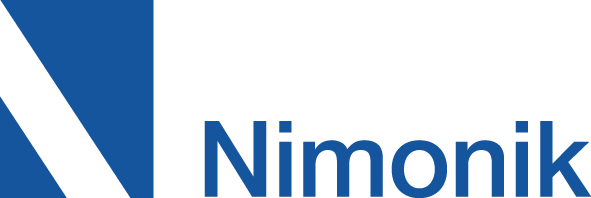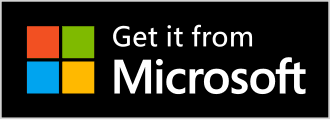By: Cheryl Wong
This is a list of select proposed EHS regulatory changes in Canada, the United States, and the European Union. Nimonik monitors EHS legislation, regulations and standards in over 30 countries and 400 jurisdictions. If you would like to track EHS legislation in specific regions, jurisdictions or countries, we are happy to help. Please send us a request for more information here and we will get in touch shortly.
Canada
United States
European Union
- Proposal for a Regulation of the European Parliament and of the Council amending Regulations (EC) No 1272/2008, (EC) No 1223/2009 and (EU) 2019/1009 as regards simplification of certain requirements and procedures for chemical products
- Proposal for a Directive of the European Parliament and of the Council amending Directive 2004/37/EC as regards the addition of substances and setting limit values in its Annexes I, III and IIIa
Alberta
Order Declaring that the Regulations Respecting Reduction in the Release of Methane and Certain Volatile Organic Compounds (Upstream Oil and Gas Sector) Do Not Apply in Alberta, 2025
Published Date: 5 July 2025
Industry Sector: Oil and Gas Industry
The Government of Canada has announced its intention to stand down the application of certain federal rules regulating the upstream oil and gas industry’s methane emissions in Alberta, in the context of the publication of a new equivalency agreement (2025–2030) between the Federal Government and the province of Alberta. The current equivalency agreement (2020–2025) is set to expire on October 26, 2025.
These changes would be implemented by suspending the application of provisions of the Regulations Respecting Reduction in the Release of Methane and Certain Volatile Organic Compounds (Upstream Oil and Gas Sector) in Alberta, which would eliminate regulatory overlap between the federal and provincial requirements for facilities from the upstream oil and gas sector that are not considered federal works or undertakings.
The facilities that are not considered federal works or undertakings would have to comply with the relevant Alberta methane emissions legislation and directives, such as:
- Methane Emission Reduction Regulation;
- Directive 060: Upstream Petroleum Industry Flaring, Incinerating, and Venting; and
- Directive 017: Measurement Requirements for Oil and Gas Operations.
According to the federal Government, the application of the provisions of the Regulations Respecting Reduction in the Release of Methane and Certain Volatile Organic Compounds (Upstream Oil and Gas Sector) would remain suspended in Alberta for the duration of the equivalency agreement, which is planned to have a duration of 5 years.
Interested persons can make comments concerning these changes until September 3, 2025.
United States
Hazardous Materials: Reducing Burdens on Domestic Companies Using Battery-Powered Equipment in Trades
Published Date: 1 July 2025
Industry Sector: General Industry, Office Spaces, Building Management and Maintenance
The Pipeline and Hazardous Materials Safety Administration (PHMSA) is proposing to “amend the Materials of Trade (MOTs) exceptions to allow for the transportation of increased quantities of lithium batteries”.
The change would notably “authorize lithium metal and lithium ion batteries under the MOTs exception and allow a net weight (i.e., the weight of the batteries themselves) of 30 kg (66 lbs.) for each lithium ion and metal battery, a gross weight of 500 kg of lithium batteries on the vehicle, and no limit for lithium ion and lithium metal batteries when contained in equipment. PHMSA is also proposing a set of safety standards for lithium batteries transported under the MOTs exception to include the prevention of short circuits, damage from shifting, the accidental activation of the equipment, and ensuring that all lithium batteries are of a type tested in conformance with the [Hazardous Materials Regulations (HMR)].”
Interested persons are invited to submit comments by September 2, 2025.
Additional information is available here.
European Union
Proposal for a Regulation of the European Parliament and of the Council amending Regulations (EC) No 1272/2008, (EC) No 1223/2009 and (EU) 2019/1009 as regards simplification of certain requirements and procedures for chemical products
Published Date: 8 July 2025
Industry Sector: Chemical Industry, Utilities and Communications
The European Commission has announced its intention to simplify and streamline “certain requirements and procedures for chemical products identified as particularly burdensome by industry and authorities.”
According to the content of the proposal, this would be made notably by updating the existing Regulation (EC) No 1272/2008 and Regulation (EU) 2019/1009, with a focus on:
- recognizing “digital contact” as an online communication channel for economic operators and requiring labels to include the name, address and digital contact of the supplier of the mixture;
- allowing “economic operators to reduce information required to be provided on the label for packaging containing smaller quantities of chemical substances or mixtures without the need to prove that this packaging is either in such a shape or form or is so small that it is impossible to meet full labelling requirements”;
- removing the fixed deadline for updating labels;
- removing certain mandatory formatting rules for labels;
- simplifying advertisement and online sales requirements to limit the scope to chemicals sold to the general public;
- allowing suppliers “to include extra contact information on digital labels instead of the physical label”;
- simplifying labelling at fuelling stations to remove the mandatory requirement on including certain label elements (e.g., nominal quantity, Unique Formula Identifier) on fuel pumps; and
- updating certain requirements for economic operators dealing with EU fertilising products with regard to the digitalisation of information and the assessment of micro-organisms.
Proposal for a Directive of the European Parliament and of the Council amending Directive 2004/37/EC as regards the addition of substances and setting limit values in its Annexes I, III and IIIa
Published Date: 18 July 2025
Industry Sector: General Industry
The European Commission has announced its intention to amend Directive 2004/37/EC to provide better protection for workers through the most updated occupational exposure limit values and biological limit values.
According to the content of the proposal, this would be made in particular by:
- adding welding fumes in the list of regulated carcinogenic substances, mixtures and processes;
- setting new exposure limits for certain hazardous substances, such as cobalt and its inorganic compounds, polycyclic aromatic hydrocarbons, and 1,4-dioxane; and
- setting out the relevant transitional measures for compliance.
Past months’ proposed changes are available here: June 2025, May 2025, April 2025, March 2025, February 2025, January 2025
Achieve comprehensive compliance with Nimonik
Nimonik exists to help organizations comply with regulatory requirements – leading to less environmental damage, better worker safety and higher quality products. We can help you with:
Document-Level Compliance Obligations
- Access over 550,000 EHS regulations, standards and guidelines for global jurisdictions on our easy-to-use software, NimonikApp.
- Receive alerts when applicable documents change or new ones get introduced.
Clause-Level Compliance Obligations
- Access specific requirements in over 100,000 regulations, standards and guidelines for global jurisdictions on our easy-to-use software, NimonikApp.
- Receive alerts when the specific applicable requirements change or new ones get introduced.
- Use the specific requirements as audit protocols to assess your compliance.
Audit and Inspection Software
- Assess your compliance to industry standards, corporate policies, customer requests or any other set of requirements with our robust mobile and web auditing app, Nimonik Audit.
We promise:
- accuracy and comprehensiveness of our regulatory content
- rapid publication of regulatory changes
- easy-to-use software
- exceptional customer support
- state of the art IT security
Contact us to discuss how you can achieve comprehensive compliance.







